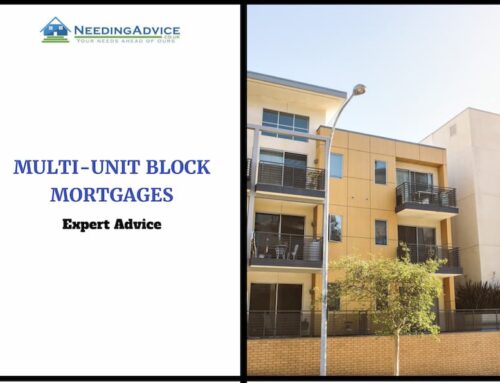Getting a Mortgage After a SEISS Grant
During the COVID-19 crisis, the Self-Employment Income SupportIncome received by borrowers who are on a low income. Scheme (SEISSSEISS stands for "Self-Employment Income Support Scheme," wh...) became a financial lifeline for many self-employed individuals facing economic instability.
Although a SEISS grant from the government doesn’t directly affect your credit score, it’s been observed that some self-employed individuals have encountered difficulties when applying for a mortgage. This is because mortgage lenders have shown caution towards customers who have relied on this support.
This has led to concerns among self-employed workers post-pandemic, with some fearing they may no longer be eligible for a mortgage.
However, we’re here to reassure you that this is not the case. Mortgage lenders are open to accepting applications from SEISS claimants. So, if you’ve claimed SEISS and are now seeking a mortgage, rest assured that lenders can accommodate you.
Post Topics
Can you get a mortgage if you’ve claimed a SEISS grant?
Definition and Purpose of Mortgage SEISS Grant
Eligibility Criteria for Mortgage SEISS Grant
What is SEISS Grant?
The Self-Employment Income Support Scheme (SEISS) was a government scheme that provided grants to self-employed individuals in the UK who had been adversely affected by the COVID-19 pandemic. The scheme ran from May 2020 to September 2021, and five grants were available.
To be eligible for the SEISS grant, you had to meet certain criteria, including:
- You had to be self-employed in the UK
- You had to have trading profits between £0 and £50,000 in the 2018-19 tax year
- Your trading profits had to be at least equal to your non-trading income
The amount of the grant you could receive depended on your trading profits and the number of grants you had already claimed. The maximum grant amount was £7,500.
The SEISS grants were taxable; you had to report them on your Self-assessment tax return. They also counted towards your annual allowance for pension contributions.
The SEISS grant was a valuable lifeline for many self-employed individuals during the COVID-19 pandemic. It helped to protect their incomes and businesses and prevented them from having to claim Universal CreditA government benefit that replaces several other benefits, i....
The SEISS grant is no longer available, but other government schemes may be able to help self-employed individuals who are struggling financially. You can find more information about these schemes on the GOV.UK website.
Can you get a mortgage if you’ve claimed a SEISS grant?
The short answer is yes, but it is worth pointing out that your options of mortgage lenders will probably be fewer than if you had been able to trade uninterrupted during the pandemic. Some mortgage lenders are nervous about lending to people who have claimed the SEISS grant, as they worry it could be a sign that your employment is uncertain or you might be struggling financially.
However, as the SEISS grand is classed as income, some lenders are not concerned that you have claimed the grant as long as you can prove that you have gone back to work and are now earning enough money to meet their affordability requirements. Other lenders, however, are placing more focus on SEISS claimants, putting them through more rigorous checks.
Therefore, your chances of getting approved for a mortgage if you have claimed SEISS may depend entirely on which mortgage lender you talk to. As we have highlighted, a SEISS grant is not an issue for some lenders, whereas others will see it and either proceed with caution or reject you immediately.
That is why it is so important to choose the correct mortgage lender for you, one that is certain to approve your mortgage application with minimal fuss and offer you its best rates. You can always contact a mortgage broker to help you with your loan application.
Definition and Purpose of Mortgage SEISS Grant
A Mortgage SEISS Grant, also known as a Self-Employment Income Support Scheme Grant, is financial assistance provided by the UK government to self-employed individuals who have experienced a loss of income due to the COVID-19 pandemic. Its purpose is to provide financial relief to self-employed individuals by assisting them in meeting their mortgage obligations.
When used in mortgage applications, the Mortgage SEISS Grant can be included as part of the income assessment. Lenders typically consider grants as a source of income, which can help borrowers meet mortgage affordability requirements. However, the impact of the grant on affordability assessments may vary depending on the lender’s policy and the amount of the grant received.
Different lenders have taken various approaches to accepting or rejecting SEISS grants as income. Some lenders readily consider the grant income, allowing borrowers to include it in their overall earnings when applying for a mortgage. On the other hand, some lenders adopt a more cautious approach and may only accept a percentage of the grant as income, considering it less stable compared to regular earnings.
Mortgage SEISS Grant is a financial assistance the UK government provides to self-employed individuals to support them during the pandemic. It can be used in mortgage applications to meet affordability requirements; however, lenders may have different approaches in accepting or rejecting the grant as income
Eligibility Criteria for Mortgage SEISS Grant
The eligibility criteria for a Mortgage SEISS (Self-Employment Income Support Scheme) Grant are crucial for self-employed individuals seeking financial assistance with their mortgage. To qualify for the grant, applicants must meet certain requirements.
Firstly, individuals must be self-employed or a member of a partnership. They must have traded in the tax year 2019-2020 and intend to continue trading in the current tax year. Additionally, they must have experienced a significant loss in trading profits due to the COVID-19 pandemic.
To apply for the Mortgage SEISS Grant, applicants must typically provide three months’ worth of bank account statements. This is to verify their income and confirm that there has been a decline in trading profits during the pandemic.
Furthermore, most lenders also require self-employed individuals to provide at least two years of accounts. This is to assess their financial stability and the viability of their business.
It’s important to note that some lenders may request a letter confirming eligibility for the SEISS scheme. This letter, provided by the government, serves as proof that the applicant qualifies for the grant.
By ensuring they meet the eligibility criteria, including providing the necessary bank statementsA record of a borrower's financial transactions often requir..., accounts, and a letter of eligibility, self-employed individuals can increase their chances of receiving a Mortgage SEISS Grant to assist with their mortgage payments during these challenging times
Step-by-step guide on how to apply for the grant
Here’s a step-by-step guide on how to apply for the Self-Employment Income Support Scheme (SEISS) grant in the UK:
- Check Your Eligibility: You must be self-employed or a member of a partnership, have traded in the tax year 2019-2020, intend to continue trading in the current tax year, and have experienced a significant loss in trading profits due to the COVID-19 pandemic.
- Understand How Much You Can Claim: The grant is worth 80% of three months’ average trading profits, paid out in a single instalment and capped at £7,500 in total1.
- Calculate Your Turnover Reduction: You’ll need to provide two turnover figures when you make your claim.
- Gather Evidence for Your SEISS Claim: You’ll need your Self Assessment Unique Taxpayer Reference (UTR), National Insurance number, Government Gateway user ID and password, and UK bank details, including account number, sort code, name on the account and address linked to the account.
- Make Your SEISS Claim: You must make the claim yourself. Do not ask a tax agent or adviser to claim on your behalf, as this will trigger a fraud alert, delaying your payment.
Please note that the last date for making a claim was 30 September 2021. For the most up-to-date information, check the official government website.
Next Steps
Getting a mortgage with a SEISS grant can greatly help self-employed individuals struggling to make their mortgage payments. By following the steps outlined above and providing all the necessary documentation, you can increase your chances of receiving the grant.
If you are considering applying for a Mortgage SEISS Grant, it’s important to speak with your specialist mortgage broker to understand their specific requirements and how the grant will impact your mortgage.
Frequently Asked Questions – Mortgage SEISS Grant
What financial advice would you give to a self-employed individual applying for a mortgage?
For self-employed mortgage applicants, maintaining a solid credit score is crucial. Regularly review your credit report, ensure your business bank statements reflect steady income, and manage your credit cards efficiently. Expert advice from a mortgage broker can also guide you through the mortgage process, enhancing your chances of approval.
How does a joint mortgage work for self-employed partners?
In a joint mortgage, both parties’ financial profiles are considered. This includes each person’s credit score and tax returns. For self-employed individuals, it’s essential to provide comprehensive business bank statements and conduct a detailed property valuation to ensure the mortgage agreement terms are favourable.
Can self-employed individuals use a tracker rateA type of mortgage with an interest rate that is set a certa... mortgage effectively?
Yes, a tracker rate mortgage can benefit self-employed individuals, especially if anticipating a lower Bank of England rate. However, it’s important to consider the potential variability in monthly repayments and ensure you have an adequate repayment vehicle.
What should I consider when making a mortgage enquiry as a company director?
As a company director, ensure that your tax returns and business bank statements accurately reflect your income. Discuss the best mortgage products with a mortgage intermediary, focusing on those that offer favourable terms for complex mortgage advances. A comprehensive mortgage promise can significantly enhance your profile to lenders.
How can I assess the affordability of a mortgage on a commercial property?
For commercial property purchases, perform a thorough property valuation and cost assessment for property risk. Utilize a detailed affordability calculation, considering all operating costs and potential income. EquityThe difference between the value of the property and the amo... loans or a mortgage subsidy may also be options to improve affordability.
What are the risks of becoming a mortgage prisoner, and how can self-employed individuals avoid it?
A mortgage prisoner cannot switch to a better deal due to financial circumstances or mortgage terms changes. To avoid this, ensure you understand all details of your mortgage agreement, including the implications of repayment charges and the flexibility of your mortgage product. Regularly reviewing your current mortgage product’s terms can help mitigate this risk.
What should I prepare for a property purchase application as a self-employed person?
Prepare all relevant documents, including detailed business bank statements, the latest tax returns, and a solid credit score report. Engage a property care association for a level 1 property risk assessment, especially if purchasing a non-new build or detached property. This preparation is crucial for a smooth mortgage process and to facilitate any future repayment plans.
How do government schemes support first-time home buyers who are self-employed?
Government schemes like Help to Buy offer equity loans, providing significant support for first-time buyers, including self-employed individuals. These schemes often require thorough affordability tests but can dramatically reduce the upfront costs of purchasing a home. To take advantage of these opportunities, make sure to apply through an accredited equity loan provider.







Leave A Comment